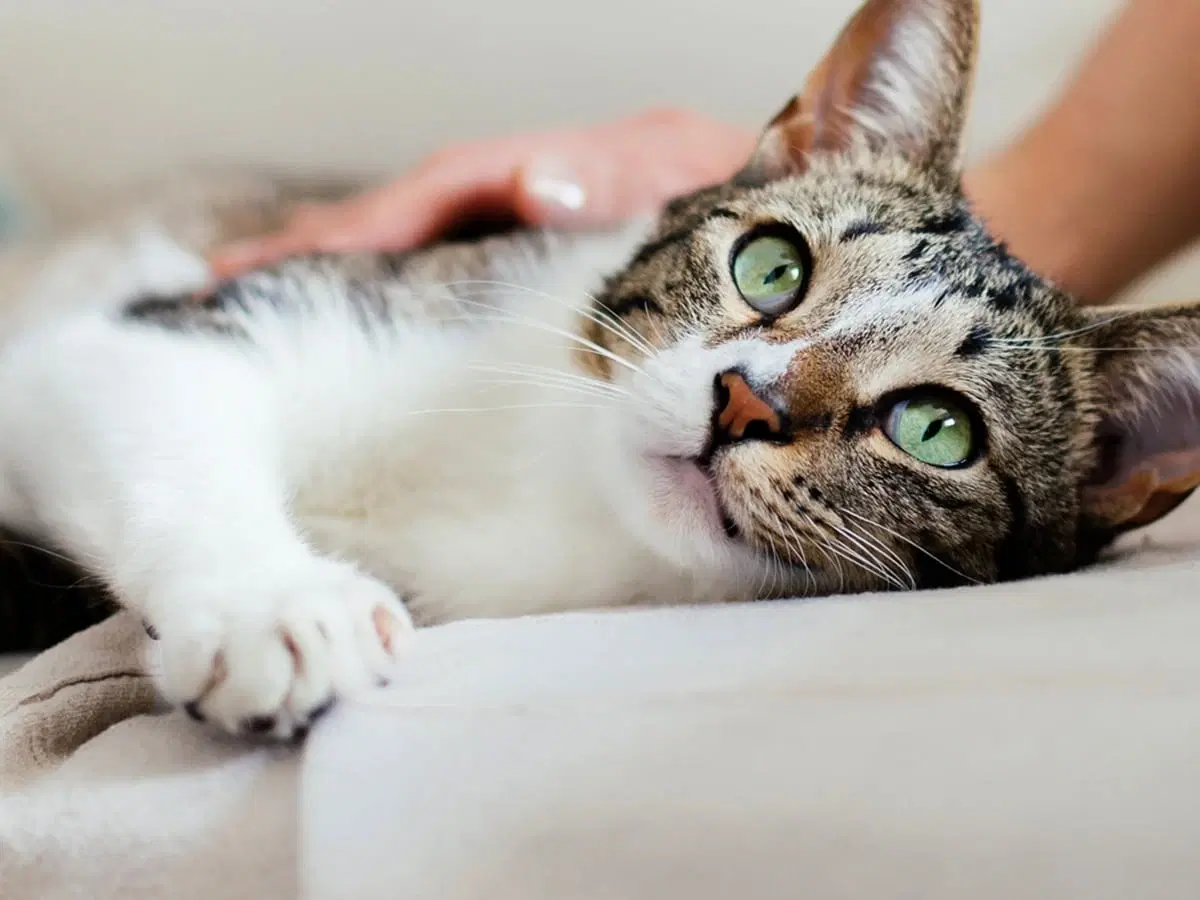The king of seasoning, garlic, is used in hundreds of ways and can be added to numerous dishes to make it more delicious. We undoubtedly love garlic, and use it often, but what about cats? Do they like garlic or the smell of garlic? Can cats eat garlic?
The simple answer is no. Your cat cannot eat garlic. Garlic is not just unsafe for your cat but can also be poisonous.
Do Cats Like Garlic?
Most cats will hate the strong smell of garlic. It’s likely that while you are dicing up some of those garlic cloves to add to your pasta or bread, your cat will stay far away. Citrus or lemon scents (orange peels, lemon peels), garlic, ammonia, vinegar, coffee grinds, pipe tobacco, mustard, citronella, and eucalyptus all deter cats. Since the smell itself is such a deterrent, it’s safe to say that cats don’t like garlic.
Is Garlic Good for Cats?
We know that they don’t like the smell of garlic for sure. But is it possible that it has some benefits? The answer, as mentioned above, is still a very big NO.
Cats are carnivorous in nature and are not supposed to be fed fruits and vegetables on a daily basis. Many vegetables are even toxic to them, including garlic. A 100g serving of raw Garlic consists of the following –
Calories 149 kcal
Fat 0.5g
Saturated Fat 0.089g
Monounsaturated Fat 0.011g
Polyunsaturated Fat 0.249g
Carbohydrates 33.06g
Sugar 1g
Fibre 2.1g
Protein 6.36g
Sodium 17mg
Cholesterol 0mg
Potassium 401mg
Now if this is the deal for humans, it could look like a great deal for cats as well. But it’s not, and you should know why.
Why is Garlic Not Safe for Cats?
Garlic is a member of the allium family, which includes garlic, onion, leeks, chives, and scallions. They all contain compounds called disulfides and thiosulphates which can be toxic to cats and dogs if ingested. The ingestion of garlic can cause health conditions that damage your cat’s red blood cells. In fact, among all the members of the allium family, garlic is the worst for cats as it is the most toxic to them.
How Much Garlic is Toxic to Cats?
For an average-sized cat weighing 10-12 pounds, less than one small glove of garlic, about 4–7 grams, can be enough to cause severe toxicity. This also means that less than 1/2 teaspoon of minced garlic or less than 1/8 teaspoon of garlic powder can be extremely toxic.
What Symptoms Should You Be Aware of If Your Cat Eats Garlic?
If your cat ends up eating garlic while you aren’t looking, keep an eye out for the following symptoms of an upset stomach. You should contact your vet right away if you see:
It may take 2-4 days for symptoms to occur. But once you notice them, you should take your cat to the vet immediately.
Are Some Cats More Prone to Garlic Poisoning Than Others?
It has been seen that Asian cat breeds seem to be more sensitive to the effects of garlic than others. Cats with prior health issues may have less ability to stave off the effects of garlic poisoning as well. If your cat has a problematic health history, or belongs to the family of an Asia origin breed, you should be extra cautious.
What to Do If Your Cat Eats Garlic?
There is a high chance that your cat would not eat garlic due to the smell alone. But all cat owners know that ‘curiosity kills the cat’. In this case, it can be quite literal. Cats may become interested in human foods out of curiosity. If your cat accidentally ingests some garlic, you should go to the vet immediately.
How Long Does It Take For Cats to Recover From Garlic Poisoning?
Once you have identified the symptoms and have taken your cat to the vet, they’ll likely run some tests on the cat to check the blood count. Based on how much time has passed since the ingestion of garlic, the vet might also perform a stomach wash or induce vomiting to get rid of the toxin. Your cat may need medications and plenty of fluids to recover. Your vet might also suggest keeping the cat at the clinic for a few hours for observation.
In mild or moderate cases of garlic poisoning, recovery rates are high. 25% of cats recover within 2 hours. However, cats with severe cases of garlic poisoning may suffer complications. The fatality rate is 1 in 100, or 1%, for cats with severe garlic poisoning.
Key Takeaways
The moral of the story is that garlic is a huge NO for your cat in any form, quantity or quality. It can prove to be very toxic for them, and costly for you to treat. Stick to cat foods and safe human foods for cats and consult your vet before introducing any new vegetable or fruit to their diet.

As Spot’s resident cat enthusiast, I am dedicated to researching and sharing information that helps pet owners take the best care of their pets. Pet ownership comes with it’s share of challenges, but my goal is to help make this journey easier.
*Jan 2019 to Aug 2024 administrator claims data. Individual reimbursement results and coverage vary based on plan type.
“Can Cats Eat Garlic, and Should They?” Purina, 18 Apr. 2023, www.purina.co.uk/articles/cats/feeding/what-cats-eat/can-cats-eat-garlic.
“Humane Deterrents for Free-Roaming Cats,” Orange County NC Animal Services, n.d., www.orangecountync.gov/2144/Humane-Deterrents-for-Free-Roaming-Cats.
Higgs, Veronica. “Can Cats Eat Garlic?” PetMD, 2 May 2023, www.petmd.com/cat/poisoning/can-cats-eat-garlic.
Miller, Quincy. “Can Cats Eat Garlic? Vet-Reviewed Facts & Safety Tips,” Hepper, 28 Aug. 2024, www.hepper.com/can-cats-eat-garlic/.
The information presented in this article is for educational and informational purposes only and does not constitute or substitute for the advice of your veterinarian.












